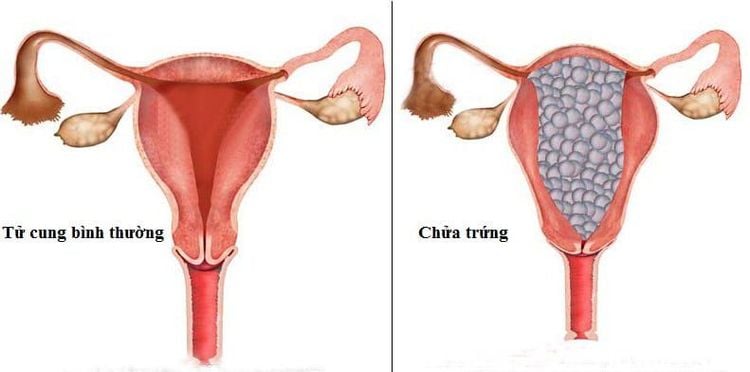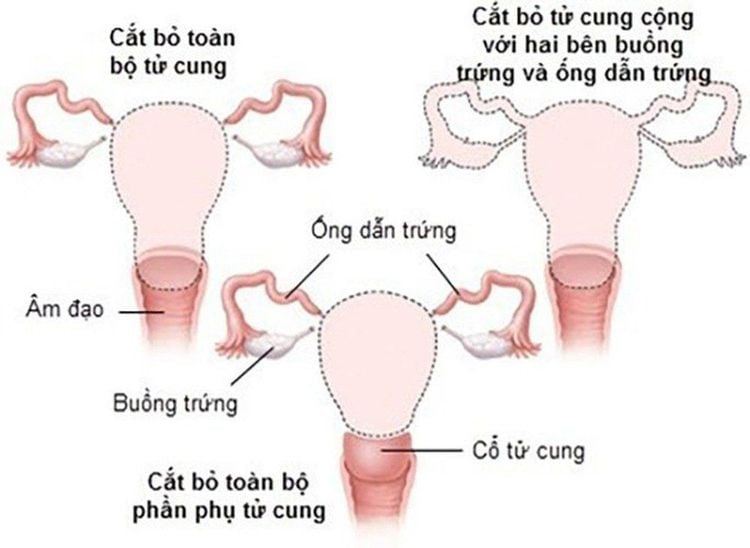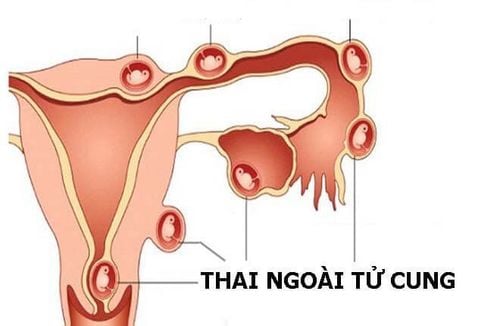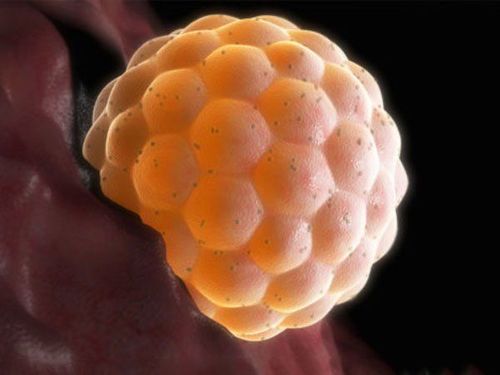This is an automatically translated article.
The article was professionally consulted with Specialist Doctor I Le Thi Phuong - Obstetrician and Gynecologist, Vinmec Ha Long International General Hospital.Fetal pregnancy is an abnormal pregnancy. Early detection and treatment of ectopic pregnancy helps to prevent unpredictable complications such as invasive ovum or glioblastoma.
1. How is the egg formed?
In normal pregnancies, each placenta has a muscular buffer and capillaries that carry blood to nourish the fetus. Around these blood vessels are a layer of trophoblastic cells and synapses. However, for some reason, this layer of trophoblastic cells and synovial cells is hyperplastic or dysplastic, and will turn into water cysts, causing the uterus to expand, crowding the fetus. This is called an egg pregnancy.
Fetal disease, if not treated early, can lead to many dangerous complications such as malnutrition, blood loss, hemorrhage, etc. In addition, ectopic pregnancy also causes many malignant complications such as invasive egg pregnancy. and trophoblastic cancer (a type of malignancy that can metastasize to the whole body with a high mortality rate).

2. How many times must the egg be sucked?
When it is determined that she is pregnant, the patient will be assigned to remove the egg mass from the uterus by the method of egg aspiration curettage. This technique is performed as follows:
Aspiration abortion (can use a suction machine under negative pressure to quickly aspirate, avoid bleeding). With an egg volume of 1,500 ml, it only takes 5-10 minutes to drain the whole thing. Infusion of isotonic saline or sweet solution mixed with oxytocin to help contractile the uterus and stop bleeding, avoid the risk of complications of uterine perforation. Use antibiotics to prevent infection. Re-suction a second time after 2-3 days. Send the scraped tissue to aspirate for pathology. According to medical reports, there are about 25% of cases of eggs left after curettage. Therefore, pregnant patients are often indicated for a second suction if the ultrasound image shows a residual egg of more than 17mm.
Note: in case the patient's cervix is long, tightly closed or needs to be observed and examined, the doctors will perform a hysterectomy to remove the egg mass.
In case there is no need to have children, women over 40 years old or invasive ovary pregnancy causes a perforation of the uterus, the patient will be assigned a total hysterectomy to avoid complications of later malignancy.

People who have had an abortion should be closely monitored to detect and promptly treat possible malignant complications. After 2 weeks of suction curettage, the patient needs to go to the hospital for blood and urine tests to evaluate the beta HCG index. This test should be done every 2 weeks for the first 3 months, followed by every 6 months until the end of 12 months. Patients should absolutely avoid pregnancy for 1 year after aspiration curettage.
Usually, after being treated with ectopic pregnancy, more than 80% of cases will progress well. In the remaining 20% of cases, the trophoblasts continue to grow, secreting HCG leading to complications.
If the disease becomes invasive ovum or placental cancer, the doctor will prescribe the use of chemotherapy to destroy cancer cells, surgery or radiation (depending on the specific case). Patients should absolutely follow the doctor's instructions during the treatment.
Once the diagnosis is confirmed, the egg is dilated and drained as soon as possible. During curettage, aspiration of the egg is painless. At Vinmec Hospital system, there is a team of qualified, experienced and enthusiastic doctors who will examine and treat, closely monitor before and after treatment.
Please dial HOTLINE for more information or register for an appointment HERE. Download MyVinmec app to make appointments faster and to manage your bookings easily.














